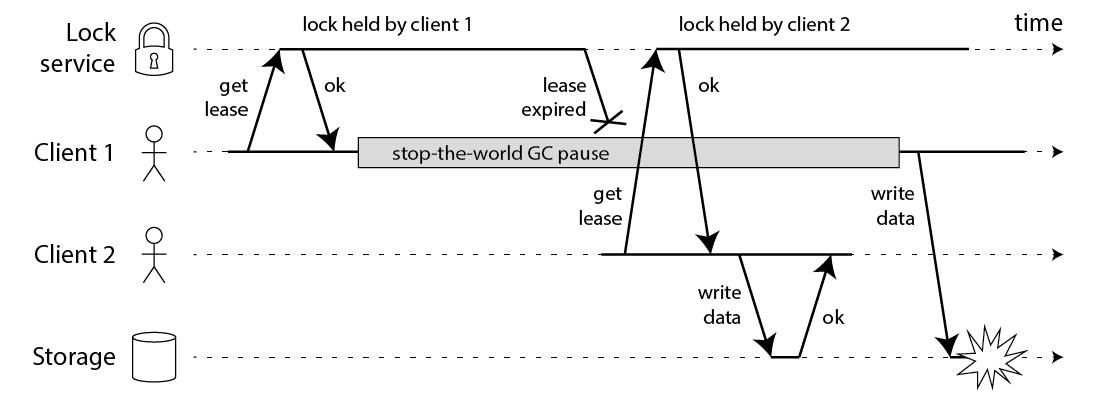This is a rust port of original go rockscache package.
The first Redis cache library to ensure eventual consistency and strong consistency with DB.
- Eventual Consistency: ensures eventual consistency of cache even in extreme cases
- Strong consistency: provides strong consistent access to applications
- Anti-breakdown: a better solution for cache breakdown
- Anti-penetration
- Anti-avalanche
- Batch Query
This cache repository uses the most common update DB and then delete cache cache management policy
use std::thread::sleep;
use std::time::Duration;
use rockscache;
use redis;
// new a redis client
let rdb = redis::Client::open("redis://127.0.0.1:6379/").unwrap();
// new a client for rockscache using the default options
let rc = rockscache::Client::new(rdb.clone(), rockscache::Options::default());
// use fetch to fetch data
// 1. the first parameter is the key of the data
// 2. the second parameter is the data expiration time
// 3. the third parameter is the data fetch function which is called when the cache does not exist
let res = rc.fetch("key1".to_string(), Duration::new(60, 0), || {
// fetch data from database or other sources
sleep(Duration::new(0, 200_000));
Ok("value1".to_string())
});rc.tag_as_deleted(key)use std::collections::HashMap;
use std::thread::sleep;
use std::time::Duration;
use rockscache;
use redis;
// new a redis client
let rdb = redis::Client::open("redis://127.0.0.1:6379/").unwrap();
// new a client for rockscache using the default options
let rc = rockscache::Client::new(rdb.clone(), rockscache::Options::default());
// use fetch_batch to fetch data
// 1. the first parameter is the keys list of the data
// 2. the second parameter is the data expiration time
// 3. the third parameter is the batch data fetch function which is called when the cache does not exist
// the parameter of the batch data fetch function is the index list of those keys
// missing in cache, which can be used to form a batch query for missing data.
// the return value of the batch data fetch function is a map, with key of the
// index and value of the corresponding data in form of string
let result = rc.fetch_batch(vec!["key1", "key2", "key3"], Duration::from_secs(300), |idxs| {
// fetch data from database or other sources
let mut values = HashMap::new();
for i in idxs {
values.insert(i, format!("value{}", i));
}
return Ok(values)
});rc.tag_as_deleted_batch(keys)With the introduction of caching, consistency problems in a distributed system show up, as the data is stored in two places at the same time: the database and Redis. For background on this consistency problem, and an introduction to popular Redis caching solutions, see.
But all the caching solutions we've seen so far, without introducing versioning at the application level, fail to address the following data inconsistency scenario.
Even if you use lock to do the updating, there are still corner cases that can cause inconsistency.
This project brings you a brand new solution that guarantee data consistency between the cache and the database, without introducing version. This solution is the first of its kind and has been patented and is now open sourced for everyone to use.
When the developer calls fetch when reading the data, and makes sure to call tag_as_deleted after updating the database, then the cache can guarentee the eventual consistency. When step 5 in the diagram above is writing to v1, the write in this solution will eventually be ignored.
- See Atomicity of DB and cache operations for how to ensure that TagAsDeleted is called after updating the database.
- See Cache consistency for why data writes are ignored when step 5 is writing v1 to cache.
For a full runnable example, see dtm-cases/cache
If your application needs to use caching and requires strong consistency rather than eventual consistency, then this can be supported by turning on the option strong_consisteny, with the access method remaining the same
rc.options.strong_consisteny = trueRefer to cache consistency for detailed principles and dtm-cases/cache for examples
The library supports downgrading. The downgrade switch is divided into
disable_cache_read: turns off cache reads, defaultfalse; if on, then Fetch does not read from the cache, but calls fn directly to fetch the datadisable_cache_delete: disables cache delete, default false; if on, then TagAsDeleted does nothing and returns directly
When Redis has a problem and needs to be downgraded, you can control this with these two switches. If you need to maintain strong consistent access even during a downgrade, rockscache also supports
Refer to cache-consistency for detailed principles and dtm-cases/cache for examples
The use of cache through this library comes with an anti-breakdown feature. On the one hand fetch will use singleflight within the process to avoid multiple requests being sent to Redis within a process, and on the other hand distributed locks will be used in the Redis layer to avoid multiple requests being sent to the DB from multiple processes at the same time, ensuring that only one data query request ends up at the DB.
The project's anti-breakdown provides a faster response time when hot cached data is deleted. If a hot cache data takes 3s to compute, a normal anti-breakdown solution would cause all requests for this hot data to wait 3s for this time, whereas this project's solution returns it immediately.
The use of caching through this library comes with anti-penetration features. When fn in fetch returns an empty string, this is considered an empty result and the expiry time is set to empty_expire in the rockscache option.
empty_expire defaults to 60s, if set to 0 then anti-penetration is turned off and no empty results are saved
The cache is used with this library and comes with an anti-avalanche. random_expire_adjustment in rockscache defaults to 0.1, if set to an expiry time of 600 then the expiry time will be set to a random number in the middle of 540s - 600s to avoid data expiring at the same time
Join the chat via https://discord.gg/dV9jS5Rb33.
If you think this project is interesting, or helpful to you, please give a star!

